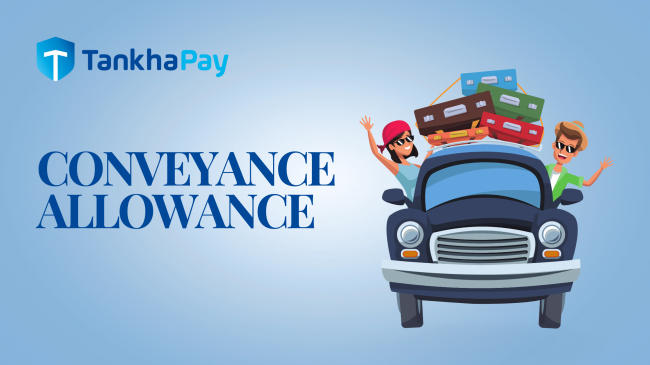
- A Complete Guide for Business Leaders
Salesforce is one of the most powerful and versatile CRM platforms available today, trusted by businesses across industries to streamline operations, enhance customer relationships, and drive revenue growth. However, implementing Salesforce effectively requires deep technical knowledge, industry-specific experience, and strategic planning. That’s where a certified Salesforce consulting partner comes in.
Choosing the right consulting partner can make or break your Salesforce investment. This guide walks you through everything you need to know about how to select the best Salesforce consulting partner for your business needs.
1. Know Your Business Goals and Challenges
Before reaching out to Salesforce partners, first get clarity on what you're trying to achieve. This will ensure you're aligned with the right consultant from the start.
Ask yourself:
Are we adopting Salesforce for the first time or optimizing an existing setup?
Do we need help with Sales Cloud, Service Cloud, Marketing Cloud, or a multi-cloud solution?
Are there specific pain points in sales, service, or customer experience we want to resolve?
Do we need integrations with other tools (like ERP, eCommerce, or marketing automation platforms)?
A clear understanding of your challenges and objectives will help you find a partner who offers relevant solutions, not just technical implementations.
2. Check for Salesforce Certifications and Partner Tiers
Salesforce provides a structured certification and partner tier system. This helps clients assess the competency and credibility of consulting firms.
Look for:
- Certified experts: These include Salesforce Administrators, Developers, Consultants (Sales/Service/Marketing Cloud), and Architects.
- Partner Tier Status: Salesforce recognizes partners with four tiers — Registered, Ridge, Crest, and Summit — based on customer success, certifications, and innovation.
- Specialized expertise: Partners may also have Industry Expertise Badges (e.g., Financial Services, Nonprofit, Healthcare) which reflect their experience in vertical markets.
- This ensures the consultants you choose are up-to-date with Salesforce’s latest releases, best practices, and security protocols.
3. Ask for Case Studies and Client References
Any reputable Salesforce partner should be able to show you examples of successful projects they’ve handled.
Ask for:
Relevant case studies in your industry or business size
Client testimonials or references you can speak to
Examples where they improved KPIs such as lead conversion rates, customer retention, or process automation
This gives you confidence in their ability to deliver measurable results — not just complete projects.
4. Evaluate Their Implementation and Project Management Approach
Each Salesforce partner has their own way of handling projects. A good partner should offer a structured and agile methodology that includes:
Discovery workshops and requirement gathering
Planning and architecture design
Development and customization
Testing (UAT)
End-user training and documentation
Go-live support and hypercare
Ask them:
What project management tools do you use?
How do you ensure clear communication and accountability?
How do you handle changes in scope or timeline?
An experienced partner should keep you informed at every stage, with defined milestones and KPIs.
5. Prioritize Partners Who Offer Post-Go-Live Support
Salesforce is not a "set-it-and-forget-it" platform. Businesses often need ongoing enhancements, user training, and issue resolution after launch.
Look for partners that offer:
Ongoing maintenance packages
User training programs for admins and staff
Support SLAs (Service Level Agreements)
Regular health checks and optimization audits
This ensures your investment continues to pay off long after the implementation is complete.
6. Consider Industry Knowledge and Customization Capabilities
Generic Salesforce setups rarely meet all business needs. Customization is often necessary — but so is domain knowledge.
A partner who understands your industry's workflows and compliance (e.g., healthcare regulations or finance security standards) will deliver better solutions.
Ask if the partner:
Has delivered solutions in your industry
Understands your customer journey and operations
Can build custom objects, workflows, Lightning components, or apps suited to your business model
This helps you achieve a truly tailored Salesforce implementation.
7. Review Tools and Integration Experience
Salesforce rarely operates in isolation. You’ll likely need integrations with:
ERP tools like SAP, Oracle, or NetSuite
Email platforms like Mailchimp or Constant Contact
Analytics tools like Tableau or Power BI
Payment gateways or inventory systems
Choose a partner that has proven integration experience, either through:
Pre-built connectors
Custom API development
Middleware platforms (like MuleSoft or Zapier)
Robust integrations are key to ensuring data consistency across systems and departments.
8. Check Reviews on Salesforce AppExchange
Salesforce’s AppExchange isn’t just for apps—it also lists official consulting partners, complete with client reviews.
Check for:
Partner star rating (out of 5)
Number of completed projects
Types of projects handled (SMB, Enterprise, Industry-specific)
Review highlights and areas of concern
Reading these reviews gives you real-world insights into what working with the partner is like.
9. Compare Pricing Models and ROI Focus
Salesforce consulting costs can vary widely. However, don’t just chase the lowest quote—focus on value delivered.
Ask:
Do they offer flexible pricing (hourly, project-based, retainers)?
What’s included in the quote (custom development, testing, training)?
Do they tie success to your business KPIs?
A good partner is transparent about pricing, avoids hidden charges, and focuses on driving ROI—not just billing hours.
10. Assess Communication Style and Cultural Fit
Last but not least, human collaboration matters. Your Salesforce partner should act as an extension of your team.
Look for:
Proactive communication and responsiveness
Openness to feedback and iteration
Willingness to train and empower your internal team
Ability to explain technical concepts in plain business language
A partner with aligned values and communication style makes the journey much smoother.
Final Thoughts
Choosing the right Salesforce consulting partner is a strategic decision that affects your business performance, customer satisfaction, and long-term growth. It's about more than technical skills — it's about partnership, trust, and shared goals.
By evaluating partners based on certification, experience, methodology, support, and cultural fit, you set yourself up for a successful and sustainable Salesforce journey.
Take your time, ask the right questions, and always choose a partner who sees your success as their mission — not just a line item.
Let me know if you'd like a ready-to-publish version of this guest post in Word, HTML, or PDF format. Would you like help finding the right blogs to publish it on too?














